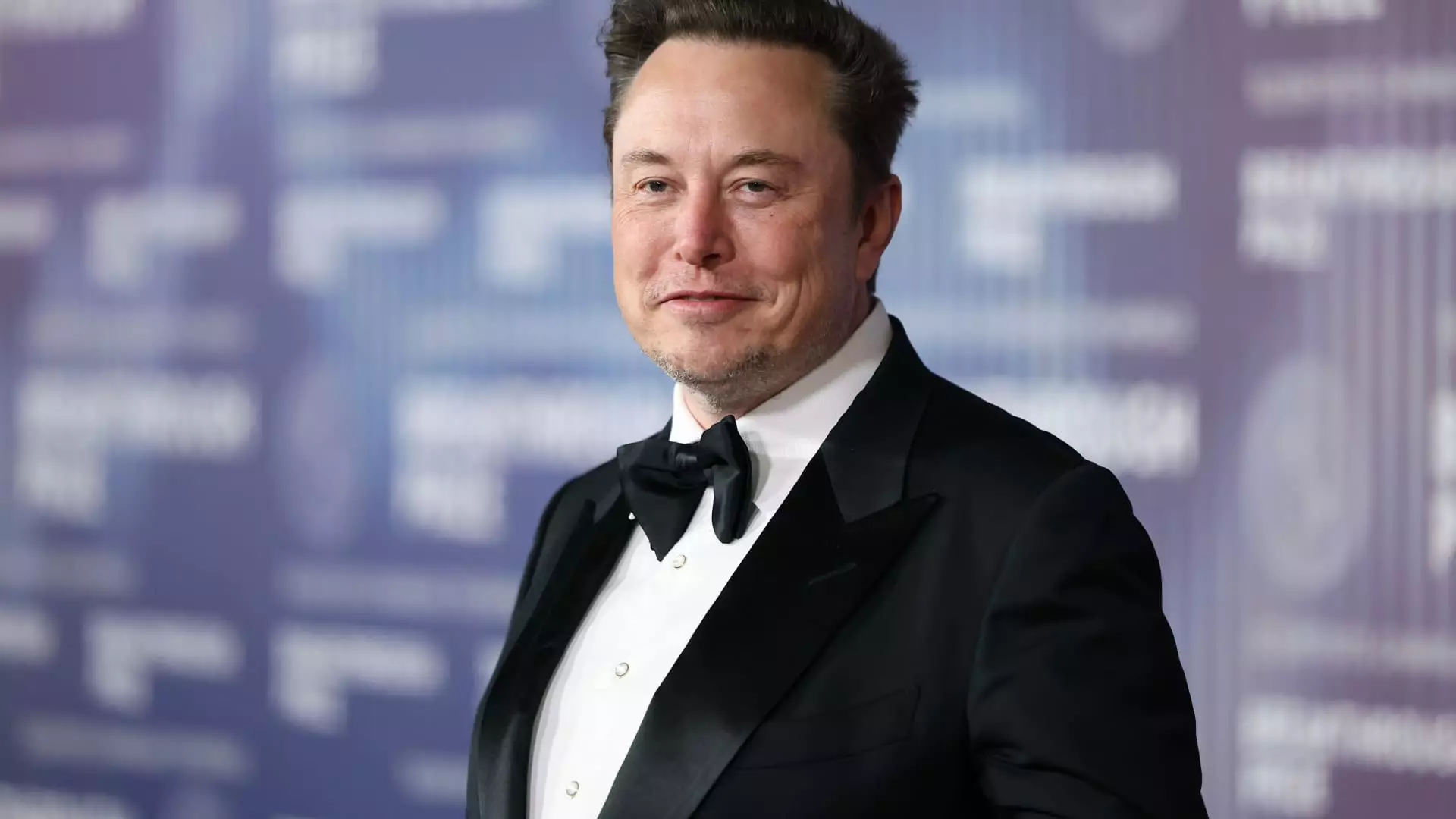As the political landscape evolves with President-elect Donald Trump gearing up for his second term, the selection of a Treasury secretary stands out as a pivotal choice. This position holds substantial weight in shaping economic policy and financial stability in the country. Recently, Elon Musk, the influential CEO of Tesla and SpaceX, lent his voice to the debate, endorsing Howard Lutnick as a candidate for this critical role. Musk’s endorsement isn’t just another celebrity’s opinion; it reflects an underlying call for transformative leadership in a government landscape that many perceive as stagnant.
Among the potential candidates, Lutnick, who is the CEO of Cantor Fitzgerald and has significant ties to Trump, is seen as a frontrunner. Musk hinted that Lutnick is capable of “actually enacting change,” suggesting a departure from the status quo that could invigorate the Treasury. In contrast, Musk expressed skepticism about Scott Bessent, claiming he represents a “business-as-usual” mentality that he fears could drive the nation further into economic turmoil. This dichotomy between the two candidates encapsulates Musk’s vision for the economic future: one that necessitates bold decisions and innovative leadership to steer away from a cycle of fiscal difficulties.
Musk’s statements on X reflect not just personal opinions but also a broader sentiment among those who seek significant reforms in government practices. By urging more voices to join the conversation, he implies that a community-driven approach to such appointments could yield a more representative and effective leadership structure. This plea for diverse perspectives in shaping critical appointments highlights Musk’s understanding of the complexities involved in governance, advocating for transparency and public engagement in political decision-making.
Political Connections and Influences
Both Lutnick and Bessent come with close connections to Trump, raising questions about how political relationships may influence the decision-making process. Lutnick’s long friendship with Trump and his active involvement in fundraising for his campaigns illustrate a partnership that could sway cabinet decisions. Meanwhile, Bessent’s role as an economic advisor during the 2024 campaign indicates the trust and reliance Trump places on him for financial strategies. Senator Lindsey Graham’s endorsement of Bessent reinforces the notion that established political ties may play a crucial role in determining who ultimately occupies the Treasury secretary position.
The Broader Economic Context
The backdrop of these discussions is the current economic climate, which has many Americans worried about financial stability. Musk’s assertion that the “business-as-usual” approach is contributing to these anxieties emphasizes the urgency for a fresh outlook on economic governance. As various stakeholders look for policies that stimulate growth and secure the nation’s financial future, the selection of a Treasury secretary will be instrumental in addressing these challenges head-on.
Musk’s endorsement highlights a critical intersection of technology, business, and politics, urging current leaders to prioritize transformative change over familiarity. The outcome of this decision will resonate far beyond administrative circles, potentially impacting economic policies that affect every American.

